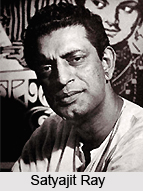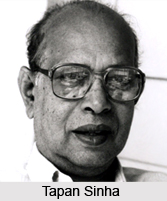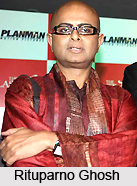 Bengali Film Directors infused with the adamant hope to cater Bengali Cinema to the Indian Mass as well as the Bengal populace ventured into cinematic business and even succeeded in the job. Indian Movies entered a complete new stage of riding on the shoulders of the renowned Bengali Directors. Spanning a period of several decades these Indian movie directors brought to the fore the artistic and lyrical films of all times suitable for a wide range of audience. The intellectualism of Bengal was apparent from their films. On the other hand the simplicity of India and life at large was also presented to the global audience through the microcosm i.e. cinema.
Bengali Film Directors infused with the adamant hope to cater Bengali Cinema to the Indian Mass as well as the Bengal populace ventured into cinematic business and even succeeded in the job. Indian Movies entered a complete new stage of riding on the shoulders of the renowned Bengali Directors. Spanning a period of several decades these Indian movie directors brought to the fore the artistic and lyrical films of all times suitable for a wide range of audience. The intellectualism of Bengal was apparent from their films. On the other hand the simplicity of India and life at large was also presented to the global audience through the microcosm i.e. cinema.
Satyajit Ray
Satyajit Ray had been a one man army who colonially altered the scenario of Bengali films and his genius is unparallel and univocal. The quiet and deep observations of the human race through the biopic lens of the directorial eye, the fruitful love for the human race, which is characteristic of all his films even, marks the apotheosis of Bengali cinema. The film aficionados globally acclaimed and accepted his cinema. Apart from being donning the mantle of a director Satyajit Ray was involved with the films as a producer, screenplay writer, composer, dialogue writer and even as a designer. There are few films which had left an indelible mark on Ray`s mind and one of them is Bicycle Thief. Pather Panchali was a grand success and brought the money minded producers to produce the realistic cinema. Today he is considered one of the pioneer neo realist Indian directors. Satyajit Ray as filmmaker has made Indians proud. His films have toured several festivals and won numerous awards. His films reflect the social standing of West Bengal during those times, and some of them had satirical overtones. After his trip to London he was encouraged to become a professional filmmaker. The Vittorio De Sica`s film The Bicycle Thief (1948) had a profound impact on Ray and he decided to film Pather Panchali.
 Buddhadeb Dasgupta
Buddhadeb Dasgupta
Buddhadeb Dasgupta is another director who has contributed much to the domain of Bengali cinema as well as World cinema. All of human beings have a cherished dream for which we live. He had once observed "We begin the journey of life to fulfill this dream. But while some of us succeed, some don`t. My films revolve around this quest for the realisation of dreams." And his films are the extension of his dreams unspoken and speaks about the dreams of his cinematic characters. Buddhadeb Dasgupta is a well-known poet and contemporary Indian filmmaker of great repute. His lyrics found in poetry form have been extended to cinema as well. During the early stages of his film career, Dasgupta made several films that were inspired by the films of Satyajit Ray. A well-respected Bengali Indian film director, Tapan Sinha is arguably the most uncompromising filmmaker outside the domain of parallel cinema. His awe-inspiring collection of work can in all probability be matched with directors like Mrinal Sen and Satyajit Ray.
Aparna Sen
Aparna Sen apart from being an actress of tremendous might ventured into the domain of film making as a film director with the smash hit film 36 Chowringhee Lane in 1981. She was also its screenplay writer. The film is based on an aged Anglo-Indian teacher living in Calcutta; the film won several positive reviews from critics and won the Best Director award at the Indian National Film Awards and the Grand Prix (the Golden Eagle) at the Manila International Film Festival.
Aparna Sen was not carried away with this early success, but started working on with several other films; the best among them are Paroma (1984), Sati (1989) and Yugant (1995). These films were particularly focusing on the feminine condition in modern-day India from different standpoints. Aparna Sen starred as the dancer mother in Unishe April (1994), the film by Bengali cinema`s Rituparno Ghosh.
 Aparna Sen further made a next directorial effort with Paromitar Ek Din (2000). This too was a critical hit. This film explored the relationship between a divorced woman (Rituparna Sengupta) and her mother-in-law, played by Aparna herself. That the relation between a mother in law and daughter in law can be coloured by the rainbow of affection, deep attachments and bond of womanhood beyond the social borders of age, and mental depth the characters are shown to unify. Paromitar Ek Din won a number of awards on the international festival circuit. Mr. and Mrs. Iyer (2002) was her next venture, featuring her own daughter Konkona Sen Sharma. This was a love story set against the insensitive backdrop of Hindu-Muslim sectarian hostility in India. This film won a National Film Award for Sen`s direction, and also an acting award for Konkona Sen Sharma. The film also won more awards at the Locarno, Hawaii and Manila film festivals.
Aparna Sen further made a next directorial effort with Paromitar Ek Din (2000). This too was a critical hit. This film explored the relationship between a divorced woman (Rituparna Sengupta) and her mother-in-law, played by Aparna herself. That the relation between a mother in law and daughter in law can be coloured by the rainbow of affection, deep attachments and bond of womanhood beyond the social borders of age, and mental depth the characters are shown to unify. Paromitar Ek Din won a number of awards on the international festival circuit. Mr. and Mrs. Iyer (2002) was her next venture, featuring her own daughter Konkona Sen Sharma. This was a love story set against the insensitive backdrop of Hindu-Muslim sectarian hostility in India. This film won a National Film Award for Sen`s direction, and also an acting award for Konkona Sen Sharma. The film also won more awards at the Locarno, Hawaii and Manila film festivals.
Tarun Majumdar
Tarun Majumdar is another pillar of Bengali Cinema who has in actuality mixed the realistic cinema with the strains of mainstream commercial cinema. His recent flicks like Alo and Chander Bari display the similar taste, the obvious choice. Shriman Prthviraj and Balika Badhu lays bare the spirit of Tarun Majumdar the authentic spirit of commercial artistry. The films made by this talented director are notable for his depiction of Bengali culture and society. Majority of his films are literature-based. He has recreated classics written by great writers like Bimal Kar, Sharadindu Bandyopadhyay, Bibhutibhushan Bandopadhyay and Tarashankar Bandopadhyay on celluloid.
Shakti Samanta
Shakti Samanta brought the flavour of Bollywood cinema to regional flicks. He aspired to be an actor in Bollywood hence moved closer to the city. Shakti Samanta is credited with for emerging the trend of making double version films in Hindi and Bengali with Amanush in 1974. He also made the first co-produced film between India and Bangladesh in 1984. His death on 9th April 2009 left a vacuum in the Indian film industry that was never to be filled.
Gautam Ghose
Gautam Ghose`s films had been the mixture of political upswings as he was a strident political activist and a photo journalist who toured the country Gautam Ghosh to document images of life and times in India. His encounter with reality, in stark close-up, inspired him to use cinema as an effective instrument of self-expression. After Dakhal , however, one can sense a slight decline in Gautam Ghosh`s standards. In subsequent films like Antarjali Yatra and Padma Nadir Majhi he seemed unable to delve deeper into the psyche of the characters of his film. He seems to be overawed by style and technique and is overlooking the thematic content. In Antarjali Yatra his recreation of the period left much to be desired.
Gautam Ghosh`s Antarjali Yatra dealt with the extremities of the caste system. In olden days, people were to be married in their caste. Since people from one`s caste were very few, often a young girl would have to be married to a very old man (from his own caste) as inter-caste marriages were not allowed. An old man is on his death-bed in the film. His relatives take him near the burning ghat, hoping that the end would dawn soon. The relatives were interested in the property of the dying man. By a turn of fate, the old man suddenly recovers. Padma Nadir Majhi had a cast which included Asaad, Champa, Utpal Dutta, Rupa Ganguly and Rabi Ghosh. The story was based on a classical novel by Manik Banerjee, and revolved around Kuber, a hardworking fisherman with a family. One day he meets a settler from a remote island of Moyna who tells a strange tale of danger and hardship. The island is governed by Hossain Miyan, a rich merchant who owns a large boat and populates the island with people from this village. Miyan defies the settler to name one person who has been compelled to go to Moyna, and the settler backs down. In a violent storm, many of the villagers lose their boats and huts. Miyan helps them make repairs and hires Kuber and others who are impoverished. The visit to Moyna changes Kuber completely. He changes in his attitude to his family and offends one of his neighbors, who in revenge frame him for theft. Kuber runs away to Moyna to start afresh. A large portion of this film was shot in Bangladesh and the film was completed on this side of the Border.
Ritwik Ghatak
Ritwik Ghatak is the name, the symbol for meaningful cinema that catered to a thousand of audience around the globe, first the bong clan then the global clan. Ritwik Ghatak especially nurtured the meaningful cinema, the New wave cinema that sprouted its wing throughout in full bloom amidst the Indian cinematic field. In that contemporary genre, the field of art was unarguably confined to the palatable plates of painting and literary and non fictional writing in India, till the time frame when people introduced themselves to the silver screen, in 1913.
As the screen remained mute for sometime, so was the audience towards this form of art. With the passage of time, as the sound was introduced in the screen, the movie makes realized the influential prowess of the screen. It was however not late that the medium was accepted as a popular platform to realize one`s potentials and voice the societal concerns.
Bengali Film Directors are the lighthouses of Bengali artistic forum. Less is more about them.






